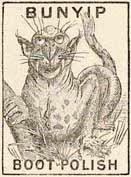EVER THE gentleman, Richard Ackland, who styles his (slow-loading) legal site Justinian after the law-giving Byzantine emperor, has sprung to the defence of the mild and ladylike Marieke Hardy, who is “as much a victim” as the man she must pay a reported $13,000 for wrongly accusing him of being a stalker.
One of history’s much debated and most interesting characters, the original Justinian was, amongst other things, a keen advocate for the legal rights of low women. It was an understandable sympathy as prostitution was the initial career of his wife, the Empress Theodora, who was renowned for lewd acts with geese, of all things. The chronicler Procopius explains her appetites:
And though she flung wide her three gates to the ambassadors of Cupid, she lamented that Nature had not similarly unlocked the straits of her bosom, that she might there have contrived a further welcome to his emissaries.
If you were to update Procopius’ delightful turn of phrase and substitute blunt obscenity for wit, that passage would bear a faint resemblance to Marieke’s essays on her participation in orgies or, perhaps, to what she has claimed her parents get up to with all manner of strange objects.
Yep, can’t fault Ackland’s insight. The Justinian moniker suits him to a tee.
UPDATE: One of Ackland's pseudononymous bloggers actually goes by the name Theodora!
And another, Junior Junior, has this to say of judges:
As Ackland speaks approvingly of plaintiffs' growing ability to wring details of bloggers and commenters from ISPs and hosting services, how would he react if Mr Justice Jib-Spinnaker were to call on him reveal his own contributor's identity?
One suspects the response would be indignance and outrage, which is usually the case when the New Establishment is called upon to live by the standards it would impose on others.
UPDATE: One of Ackland's pseudononymous bloggers actually goes by the name Theodora!
And another, Junior Junior, has this to say of judges:
Jurors obviously come in an array of types and degrees of intelligence, but so do judges.As readers of this blog will know, the Professor's discipline is Etruscan semiotics, which is much less demanding than the law because you can just make it up as you go along. But if there is a judge out there who is a sailing club committee member and widely known as such by colleagues, would that individual be right to get a little ruffled by Ackland's anonymous acolyte's imputation that he or she may figure at some lower point on any graph laying out the judiciary's "attachment to reality."
To replace 12 people who represent community standards and common sense with two or three judges, who represent their private school outlook and sailing club committee, is hardly a good swap.
I don't have anything against private schools or sailing clubs, as such, but judges vary significantly in their level of attachment to reality.
I don't mean they are suffering a delusional mental illness (although that's a possibility in some cases), but they live in a world of dress-ups, bowing and scraping and generally being treated like little princelings (or princesses).
None of which is conducive to being a standard, average, well-rounded individual.
As Ackland speaks approvingly of plaintiffs' growing ability to wring details of bloggers and commenters from ISPs and hosting services, how would he react if Mr Justice Jib-Spinnaker were to call on him reveal his own contributor's identity?
One suspects the response would be indignance and outrage, which is usually the case when the New Establishment is called upon to live by the standards it would impose on others.

